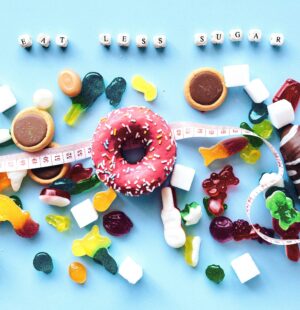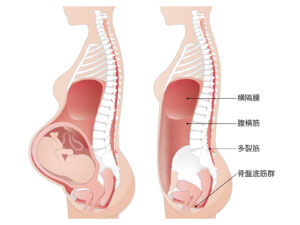Postpartum Readiness: Top 10 Troubles to Watch
Pregnancy after age 35 is medically categorized as “advanced maternal age” and is associated with specific health risks. But with the right knowledge and preparation, many women go on to have smooth births and healthy babies.
In this article, we introduce 10 common postpartum health concerns seen after late pregnancy—supported by recent international studies—and offer tips on how to prepare your body for a safe and supported recovery.

Higher Risk of Miscarriage
As maternal age increases, so does the likelihood of chromosomal abnormalities, which significantly raises the miscarriage rate. A Danish study reported miscarriage rates reaching 50% for women over 40 (Nybo Andersen et al., 2000).
Increased Risk of Chromosomal Disorders
The chance of chromosomal conditions like Down syndrome rises sharply after age 35. According to the American College of Obstetricians and Gynecologists (ACOG), the risk at age 40 is roughly 1 in 100.

Gestational Diabetes
Age-related insulin resistance can increase the risk of gestational diabetes. A German study of 2,000 pregnant women found the risk doubled for women over 35 (Schneider et al., 2011).

Pregnancy-Induced Hypertension
Older age increases the risk of conditions like preeclampsia. U.S. studies show women over 35 are 2.3 times more likely to develop pregnancy-induced hypertension compared to women in their 20s (Ananth et al., 2017).
Higher Preterm Birth Rate
Spontaneous or medically indicated preterm birth is more common over age 35. An Irish cohort study found women over 40 were 1.6 times more likely to give birth before 34 weeks (Kenny et al., 2013).

Increased Cesarean Delivery Rate
Cesarean rates rise with maternal age. In the U.S., almost 40% of first-time mothers over 35 undergo C-sections (Greenberg et al., 2007).
Risk of Fetal Growth Restriction (FGR)
Age-related changes in placental function can impair fetal growth. A UK study showed women over 35 have double the FGR rate compared to younger women (Jolly et al., 2000).
Increased Risk of Stillbirth
U.S. national data shows that women over 40 have a 1.4–2 times higher risk of stillbirth after 37 weeks gestation (Reddy et al., 2006).

Higher Postpartum Hemorrhage Risk
Uterine muscle fatigue and prolonged labor increase postpartum bleeding risk. An Italian study found women over 40 experienced 25% more blood loss on average (Driul et al., 2010).
Higher NICU Admission Rate
Premature birth and complications can lead to newborns requiring NICU care. A Belgian study found around 15% of babies born to older first-time mothers required NICU admission (Delbaere et al., 2007).

Conclusion
While risks do increase with age, awareness and preparation are powerful tools. Proper nutrition, moderate exercise, restful sleep, and stress management can all help regulate hormones and optimize your physical condition for childbirth and postpartum recovery.
Pregnancy is just the beginning of your parenting journey—so let your self-care now be an investment in your future well-being and that of your child. Understanding your body, creating a supportive environment, and practicing small daily habits will help you feel empowered at every stage.
Your Complete Guide to “Maternity Hands Care” – A Prenatal Therapy in Tokyo
-
- Advanced Maternal Age Support
– Physical stamina, muscular-skeletal strength, fatigue recovery
- Advanced Maternal Age Support
24. Complete Guide to Pregnancy After Age 35
25. Top 10 Health Risks After Late Pregnancy
26. Latest Studies on Pregnancy Over 35








